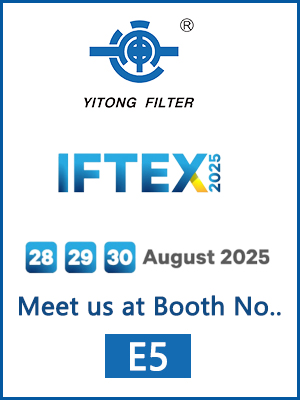 January 09, 2024
January 09, 2024
In the realm of air filtration, terms like HEPA, ULPA, MERV, and pre-filters are pivotal components defining the efficiency and performance of air purification systems. These terminologies represent diverse types of filters, each playing a critical role in capturing and eliminating airborne particles and pollutants.
HEPA Filters (High-Efficiency Particulate Air Filters)
HEPA filters stand as one of the most efficient air filters, designed to capture particles as small as 0.3 microns in size. They excel in filtering out bacteria, viruses, pollen, dust, smoke, and other minute particles, purifying the air and creating a cleaner and healthier indoor environment. HEPA filters find application in medical facilities, laboratories, and environments demanding exceptionally high air quality standards.
ULPA Filters (Ultra-Low Penetration Air Filters)
ULPA filters surpass HEPA filters by capturing particles smaller than 0.3 microns. Their exceptional ability to maintain air purity effectively filters even smaller particles, such as finer bacteria, viruses, and smoke particles. Hence, ULPA filters are employed in environments where stringent air quality requirements are mandated.
MERV Ratings (Minimum Efficiency Reporting Values)
MERV ratings serve as a standardized measure to assess the performance of mechanical air filters. Ranging from 1 to 20, these ratings gauge a filter’s efficiency in capturing different-sized particles. A higher MERV rating indicates the filter’s capability to capture smaller particles, thereby offering superior filtration efficiency. MERV ratings are commonly utilized in residential and commercial HVAC systems, aiding in the selection of filters tailored to specific needs.
Pre-filters are often employed to prolong the lifespan of primary filters (such as HEPA or ULPA filters). They capture larger particulate matter like dust, pet hair, and dander, preventing these particles from reaching the primary filter. This reduces contamination and clogging of the main filter, thereby enhancing overall filtration efficiency.
Understanding these terms and functionalities is paramount when selecting air filters suited to specific requirements. For environments demanding exceptional air quality, such as medical facilities, laboratories, or specific production environments, HEPA or ULPA filters might be the optimal choice. For typical residential or commercial settings, opting for filters based on MERV ratings can be a prudent choice, while considering the inclusion of pre-filters to augment system performance and efficiency.
The selection of air filters holds paramount importance in maintaining healthy indoor air quality. Whether it's reducing allergens, pathogens, or enhancing overall air quality, choosing and regularly replacing air filters appropriately can aid in creating a cleaner, healthier living environment.

